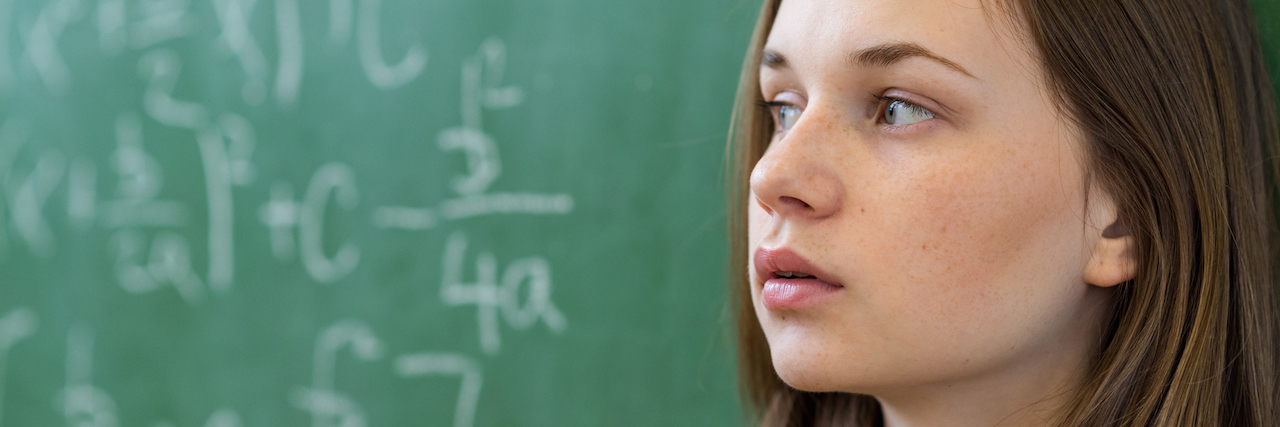How the RESPONSE Act Could Hurt Students Struggling With Their Mental Health
Sometimes the news isn’t as straightforward as it’s made to seem. Christa Marie, A Mighty contributor, explains what to keep in mind if you see this topic or similar stories in your newsfeed. This is The Mighty Takeaway.
On Wednesday, Sen. John Cornyn (R-TX) released the RESPONSE Act, a new bill designed to help prevent mass shootings in public schools. The bill would require public schools to monitor students’ online activity, flagging behavior that is considered alarming, including self-harm. The goal is to identify students who might become violent, while also offering more supports and resources to students who are struggling, including increased access to mental health services.
A press release for the bill states it will “incentivize” schools to prevent mass violence through internet safety:
Incentivize schools to enforce Internet safety polices that detect online activities of minors who are at imminent risk of committing self-harm or extreme violence against others in order to provide students with the services they need and prevent possible violence.
While I think we can all agree that increased mental health services in schools sounds like a good plan, some aspects of this bill are concerning. The act has an alarmingly significant emphasis on self-harm, but most people who self-harm are not violent. Those who do engage in dual-harm — violence directed at both themselves and others — are frequently both victims and witnesses of family aggression, which brings up additional concerns. According to The Guardian, when this monitoring technology is put into practice, school officials notify parents immediately when a student’s behavior online is considered cause for concern. Online behavior can include anything from emails sent from the student’s school email account or social media monitoring.
As someone who grew up in a violent home environment — and who has a history of self-harming behaviors — I personally found this quite alarming. I still have flashbacks of what happened when my family discovered I was self-harming several years ago, and I haven’t seen that family member in person in over a year. For students living in violent environments, informing their parents of the concerns may bring up even more challenges for them instead of increasing their supports, and this may become a physically and emotionally unsafe situation. Additionally, it’s important to mention that even those who do engage in dual-harm are not necessarily likely to engage in the type of mass violence that school shootings fall under, although this topic is one that research still needs to explore.
While this bill might not pass, it’s important to start a conversation about this topic, as schools are already implementing this kind of technology, despite little evidence of its effectiveness. This lack of privacy may decrease students’ levels of trust as well as the likelihood of self-disclosure. Students’ awareness of being monitored may lead to social isolation, which is associated with increased mental health concerns and defeats the initial purpose of monitoring their activity.
Given the Secret Service reports being unable to pin down a specific profile of school shooters, it’s also important to discuss the significance of bias within the human or software-based analysts monitoring students’ activity. Analysts with inaccurate presumptions may unnecessarily flag behavior that is not a genuine cause for concern, which is particularly alarming when considering students who are part of historically oppressed or marginalized communities. Given that these students already face disproportionate amounts of extreme disciplinary action, it’s important to consider how this could affect both the mental health and education of these students. If a student is routinely being pulled out of class when there is no genuine cause for concern, they then miss valuable instruction time, creating an array of educational challenges. Additionally, perceived discrimination is associated with an increase in mental health challenges, such as depression, anxiety and suicidal ideation.
As someone who has worked in schools for the entirety of my adult life, I understand the sense of urgency that arises when discussing school shootings. We want to ensure students’ safety by any means possible, and rightly so — but it is important to ensure that we are not implementing measures that are not only ineffective but also harmful in other ways. While preventing school shootings is important, we don’t have evidence that supports this invasion of student privacy. It’s not worth the harm it could cause.

